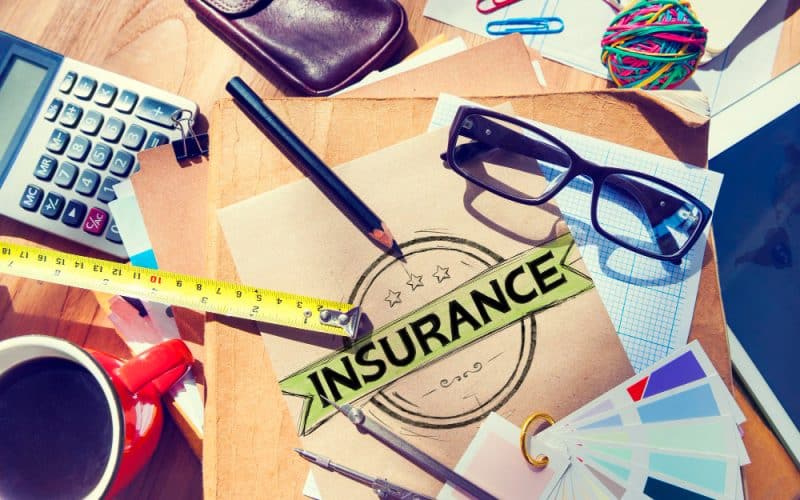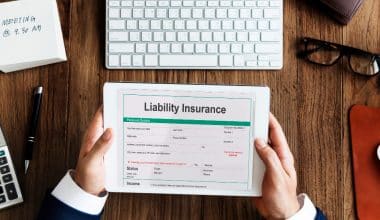Having the right type of coverage is crucial for any business, especially if you own a start-up or small enterprise that’s still weaving its way to profitability. But how much will small business insurance cost you? Will it provide the protection that you need? And does cheaper really mean better when it comes to selecting this form of coverage?
Small business insurance is more important than ever, thanks to the array of modern risks business owners face. Whether you are an online-based contractor or you own physical property, knowing the cost while finding and buying the right business insurance is essential to protecting your operations from the unexpected.
What is small business insurance?
Small business insurance, sometimes called commercial insurance, helps protect a business’s assets, property, and income. A business owner’s policy (BOP) is the most common insurance product for small businesses, according to the Insurance Information Institute (III).
A BOP typically includes three basic types of coverage to help protect a business: business property coverage, general liability coverage, and business interruption coverage.
If you are a small business owner, you may also be able to buy additional insurance coverages to customize your policy based on your business’s specific needs. These additional coverages may include commercial auto coverage, errors and omissions coverage, key employee coverage, and more.
What classifies as a small business?
The U.S. Small Business Administration (SBA) defines a small business as an independent business that has fewer than 500 employees. However, this definition can vary by industry.
For insurance purposes, only small- to medium-sized businesses that meet certain requirements are eligible for a BOP, according to the III. Insurers may consider several factors when assessing whether a business is eligible for a BOP, which include:
- Ownership structure: The ownership structure of a business can also impact its classification as small, according to the SBA. In some cases, insurance providers may consider factors such as whether the business is independently owned and operated or part of a larger corporate entity.
- Number of employees: One of the primary factors used to classify a business as small is how many people it employs. Typically, businesses with fewer than a certain number of employees are considered small. The threshold is determined by the insurance provider and can range from a handful of employees to several hundred, depending on the industry and the specific insurance policy.
- Annual revenue: In addition to the number of employees, the SBA considers the annual revenue of a business when determining its size. Similarly, insurance providers may set a maximum revenue threshold for small businesses.
- Industry classification: Certain industries have their own unique standards for defining small businesses. For example, the SBA sets industry-specific size standards based on the number of employees or annual revenue. These standards help determine eligibility for government programs and contracts.
It is worth noting that the definition of a small business may differ among insurance providers, so it is essential to carefully review your policies and consult with your insurance providers to ensure you meet the specific requirements for coverage.
How much does small business insurance cost?
The cost of small business insurance depends on your industry and the specific risk factors affecting your company. To evaluate the cost of your small business insurance coverage, an insurance agent will look at the following:
- The risk level of your industry
- The number of employees at your company
- The size, age and condition of your business property
- The location of your business
- Your annual income
According to a survey conducted by Insureon, the average yearly cost of business insurance is $1,281.
Types of small business insurance
Business Owners Policy (BOP)
A business owners’ policy (BOP) bundles general liability insurance, commercial property insurance and business interruption insurance together. It’s an affordable way to buy small business insurance, as buying the policies separately will mean higher prices.
Companies with 100 employees or fewer and revenues of up to about $5 million are good candidates for a BOP, according to the Insurance Information Institute.
Business liability insurance
General liability insurance protects a small business from claims of property damage and bodily injury. Other claims handled by general liability insurance include reputational harm, advertising injury and copyright infringement.
If your small business has a business liability insurance policy, it will be able to maintain financial stability if a customer or another business sues you. A general liability policy also pays for your legal costs, along with settlements and judgments.
Commercial property insurance
A commercial property insurance policy protects the physical location of your small business and your business equipment, computers and office furniture. Owned and leased business equipment are both covered by this policy.
Commercial property insurance policy typically applies to any loss to your small business property due to perils such as lightning, wind, hail and fire. It also covers theft and acts of vandalism.
Health insurance
Health insurance providers offer basic healthcare coverage to small businesses, along with other services. This can include Medicaid and Medicare policies, long-term care insurance, dental coverage, and vision benefits.
Businesses that employ more than 50 full-time staff in the USA are required to take out health insurance for their workers, according to the Affordable Care Act (ACA). Most countries also have a standard number for this. For those with less than 50 employees, the ACA offers a Small Business Health Options Program (SHOP) as coverage.
Cyber liability insurance
A cyber liability insurance policy helps with the costs of cyberattacks and data breaches. Let’s say some private customer information gets leaked from your company’s database. If the customer files a claim against your company, cyber liability insurance will help pay for the costs.
Cyber liability insurance also will help pay for things such as notifying customers impacted by a data breach and offering them free credit monitoring.
Errors and omissions insurance
Errors and omissions insurance will pay out to customers who make a claim against your small business for mistakes. These types of mistakes include misrepresentation, violation of good faith and fair dealing, negligence and giving false or inaccurate advice. It also pays for legal defense costs, judgments and settlements.
Without E&O insurance, you will always be reimbursing customers out of your own pocket and paying for a lawyer.
Business interruption insurance
This replaces lost income from a small business if you need to temporarily shut down due to a loss covered by the policy, such as a lightning strike or a fire. Other perils covered by business interruption insurance include theft, wind and falling objects.
If any of these problems strike your small business, business interruption insurance pays for money lost because of damaged merchandise, lost earnings and additional expenses such as having to move the business to a new location on a temporary basis.
Commercial auto insurance
Commercial auto insurance for the cars, trucks and vans used for your small business.
A personal auto insurance policy typically excludes any business uses of a vehicle. This is why it is very important to get a commercial auto insurance policy if you have a company car, truck or van that you use for business purposes.
Hired and non-owned auto liability insurance provides liability coverage should employees rent or use their personal cars for business purposes.
Commercial umbrella insurance
Commercial umbrella insurance offers an extra layer of protection above the other liability insurance policies of your small business. Its purpose is to provide additional liability protection once you reach your liability limit on an underlying insurance policy.
For a typical business, the umbrella policy would provide protection beyond the general liability and auto liability policies. If a company has employment practices liability insurance, directors and officers liability, or other types of liability insurance, the umbrella could provide protection beyond those policy limits as well.
Employment practices liability insurance
Employment practices liability insurance covers (up to the policy limits) damages for which an employer is legally liable such as violating an employee’s civil or other legal rights. In addition to paying a judgment for which the insured is liable, it also provides legal defense costs, which can be substantial even when there has been no wrongdoing.
Key employee insurance
Life or disability income insurance can compensate a business when certain key employees die or become disabled. These coverages cushion some of the adverse financial impact that results from losing a key employee’s participation.
Directors and officers’ liability insurance
Directors and officers liability insurance protects directors and officers of corporations or not-for-profit organizations if there is a lawsuit claiming they managed the business or organization without proper regard for the rights of others. The policy will pay any judgment for which the insured is legally liable, up to the policy limit.
It also provides for legal defense costs, even where there has been no wrongdoing.
What should small businesses consider before buying insurance?
Thanks to the crucial role that insurance plays in protecting a small business, industry experts advise companies to shop around and compare options from multiple providers to make sure that they get the protection they need at the best possible price.
Here are the key criteria that specialists say small businesses must consider when choosing the right policies:
- Coverage options: Many policies look similar across insurers in terms of which perils will or will not be covered. Small businesses should ask their insurance providers about adding or extending coverages to suit their business needs.
- Premiums and deductibles: Experts warn small businesses against choosing the cheapest available policy, which could cost them tens to hundreds of thousands – potentially even millions in the long run. Companies should look for policies with premiums and deductibles that offer the best value for the amount of coverage and the relative level of risk facing their businesses.
- Policy limits: Businesses should make sure that the limit of each insurance policy can cover the full value of the protection they require.
- Company reputation: Businesses should look for insurance providers with a good track record for customer satisfaction and fair business practices.
- Claims reporting: Businesses should also make sure that they can navigate the claims process easily to minimize financial losses and disruptions to their operations. The process is often laid out in the product disclosure statement of the policy.
- Financial stability: Companies should make sure that their insurer is in good shape financially to cover claims that may arise.
What does small business insurance cover?
Small business insurance covers a range of things, and the specifics depend on the plan and provider. Some examples could include:
- Third-party claims of bodily injury or property damage
- Damage or loss of physical assets like buildings for warehouses or stores, etc., equipment, or inventory, often due to events like fire, theft, vandalism, or natural disasters
- Replace lost income and cover ongoing expenses if a covered event disrupts business operations
- Claims of negligence or inadequate work
Why do small businesses need insurance?
Small businesses need insurance to help cover the costs associated with liability claims, property damage and other catastrophes affecting business operations. If you don’t have business insurance, you’ll have to pay out of pocket for legal claims against your company and damage to your business property, which can easily bankrupt a small startup.
The average cost of a liability claim is now more than $15,000, according to the Insurance Journal.
In some cases, your small business might be required by law to carry certain insurance policies. For example, it’s likely that your state compels you to have workers’ compensation insurance if you employ workers. Also, if your business employs fifty or more workers, you’ll need to provide them with health insurance.
Recommended Articles
- Small Business Insurance: What Is It & How Does It Work?
- 8 Best Insurance Providers For Small Business 2023
- How to Get Small Business Insurance: Complete Guide
- Business Insurance For LLC: What It Is & Best Options






